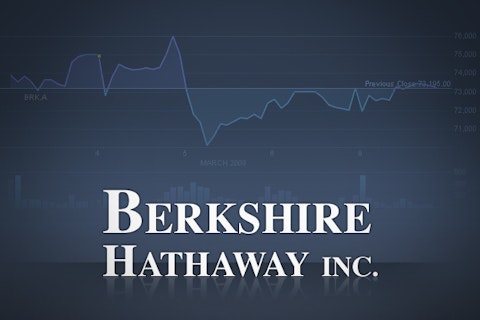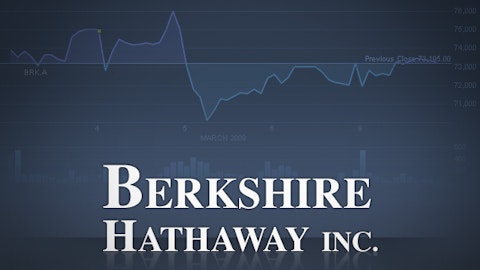In June 1942, an 11-year-old Warren Buffett bought his very first stock.
The target of the future Berkshire Hathaway Inc. (NYSE:BRK.A) CEO’s inaugural buy? Three shares of Cities Service Preferred at $38 apiece, good for a total investment of $114.
That was a hefty sum back then for any kid. Adjusted for inflation, Buffett’s $114 would have had the same buying power as roughly $1,633 today.
Then again, Buffett did have a bit of a head start, considering his father was himself a stockbroker, so young Warren was already somewhat familiar with the idea of buying and selling small pieces of businesses through the stock market.
But that didn’t make him feel any better when the price of Cities Service Preferred quickly plunged 29% to $27 per share later that month.
Even still, that drop was largely thanks to a broader market decline that year, and nothing in particular had happened to negatively change Buffett’s investing thesis for the company. As a result, when the stock recovered shortly thereafter, Buffett sold at $40 per share to net a tidy 5.3% gain on his investment.
Not too shabby, right?
Here’s the kicker
Shortly after he sold, however, the stock proceeded to rise to more than $200 per share.
In the end, had Buffett simply stuck to his guns and trusted his original decision, he would have more than quintupled his $114 investment to more than $600.
Or, if you prefer the illustration in today’s dollars, Buffett would have quickly turned his $1,633 into a whopping $8,595.
Now most folks would probably cut the young investor some slack for this rookie mistake. After all, he was just a kid, right?
There’s a name for that …
The thing is, I’m sure I wouldn’t be going out on a limb to say thousands upon thousands of adult investors make this same mistake every day.
In fact, in the world of behavioral finance, they call it the “disposition effect” — a term to describe the tendency of investors not only to hold on to stocks that have dropped in value, but also to sell their winners too soon.
And while Buffett was right not to panic and held on to a stock for which the underlying fundamentals hadn’t changed, his itchy trigger finger to sell obviously got the better of him when that stock edged into positive territory.
In the end, though, it’s safe to say this lesson paid huge dividends down the road, as Buffett was able to use it as a starting point to hone his incredible ability to focus not just on the price of his equities at any given moment, but also on the actual value of the businesses behind the stocks he buys.






